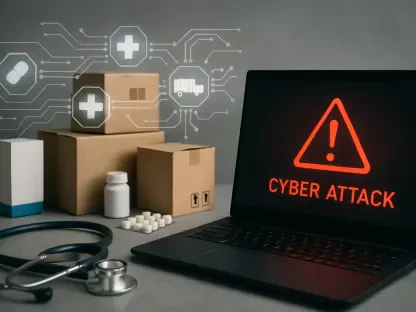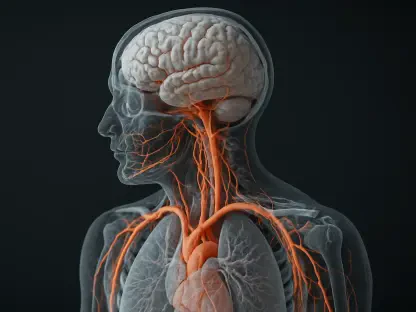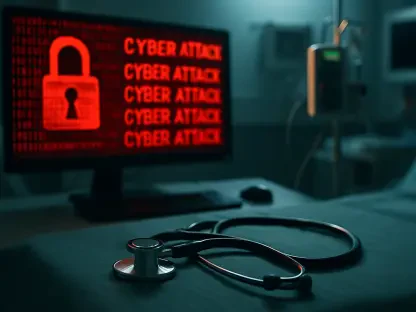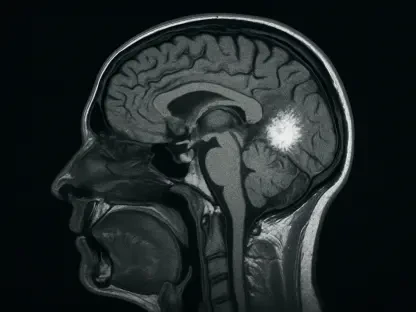In today’s digital age, healthcare systems are increasingly vulnerable to cyber threats, posing significant risks not only to operational integrity but also to patient care. We have expert James Maitland with us, a specialist in robotics and IoT applications in medicine, to shed light on this pressing issue. His insights are invaluable as Kettering Health grapples with a severe cyberattack, showcasing the broader implications and strategies to counteract such breaches in the healthcare sector.
Can you describe the cyberattack that Kettering Health is currently facing?
The cyberattack on Kettering Health has led to a widespread technology outage due to unauthorized access to its network. This situation has caused immediate disruptions in patient care, notably affecting elective procedures, while challenging the operational capabilities of their call center, which is currently offline.
How did the unauthorized access to Kettering’s network occur?
While specifics have not been disclosed by Kettering Health, unauthorized access typically occurs through vulnerabilities in the network infrastructure that hackers exploit. This could involve phishing attacks, insufficient firewall defenses, or unpatched system software that leaves the network exposed.
What measures have been taken to contain and mitigate the cyberattack?
Kettering Health has indicated that they are taking decisive steps to contain and mitigate the impact of the attack. This involves active investigation and continuous monitoring to understand the scope of the breach and implement corrective measures to restore their systems while safeguarding data.
How is the cyberattack affecting patient care at Kettering Health facilities?
The most significant impact on patient care has been the cancellation of elective inpatient and outpatient procedures. While emergency rooms and clinics remain operational, disruptions in scheduling and communication may pose additional challenges, potentially delaying care for patients.
What procedures have been impacted by the attack?
Specifically, elective procedures have been canceled, which affects patients who were scheduled for these non-emergency medical treatments, potentially impacting recovery times and overall health outcomes depending on the severity and timing of their conditions.
Are emergency rooms and clinics still operational despite this attack?
Yes, the emergency rooms and clinics at Kettering Health continue to operate, ensuring that critical and life-threatening cases can still receive the necessary attention. Maintaining these services is crucial in preventing further healthcare crises during such cyber incidents.
How are patients being informed that elective procedures are canceled?
Communication with patients regarding canceled procedures would typically be managed either through direct contact from healthcare providers or by leveraging any secondary communication systems that remain unaffected by the outage to keep patients apprised of their appointments.
Has the call center’s offline status affected communication with patients and staff? How so?
The offline status of Kettering’s call center undoubtedly hampers efficient communication, complicating the dissemination of accurate information and coordinating care logistics, which can lead to confusion or delays in receiving necessary medical guidance.
Why do you think healthcare is such a targeted sector for cybercriminals?
Healthcare systems are lucrative targets due to the high value of medical records and other sensitive data that can be monetized. Additionally, the urgent nature of healthcare services often means providers are under intense pressure to resolve service disruptions quickly, making them vulnerable to ransom demands.
Can you explain the potential consequences a cyberattack can have on healthcare delivery?
Cyberattacks can significantly disrupt healthcare delivery by delaying treatments, compromising patient data confidentiality, and limiting the operational capacity of medical facilities. This not only affects patient trust but can also have severe health repercussions if critical care is postponed or redirected.
What steps can healthcare providers take to improve their cybersecurity defenses in light of ongoing threats?
Providers should enhance their cybersecurity infrastructure by adopting robust encryption, regular system audits, employee training to recognize phishing attempts, and implementing advanced monitoring tools to detect and respond to threats in real-time.
Do you have any advice for our readers?
For readers, especially those connected to the healthcare sector, understanding that cyber threats are a persistent risk is key. Investing in comprehensive cybersecurity strategies, staying informed about the latest threats, and promoting awareness at all organizational levels will be vital in safeguarding against future breaches.









